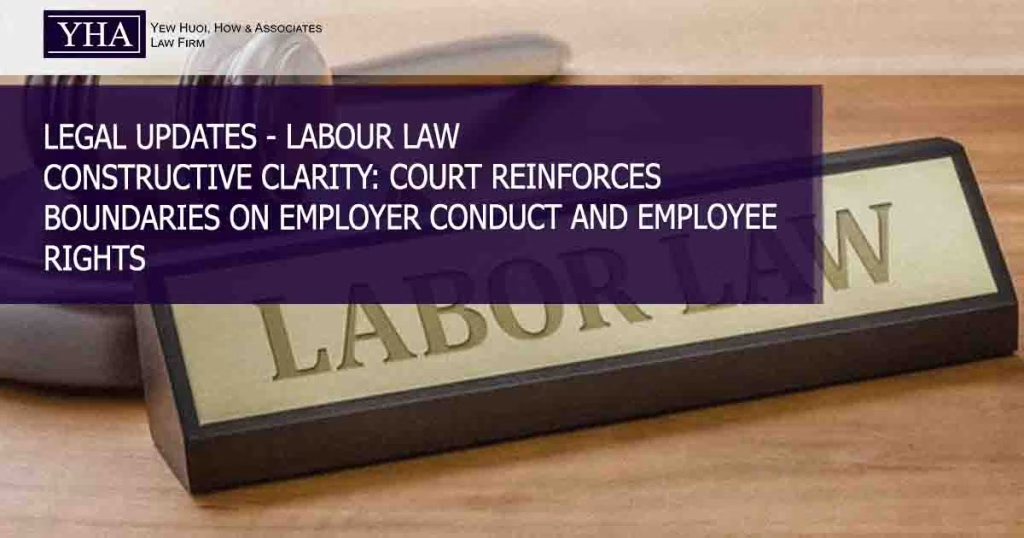1. Summary and Facts
In Sudhir a/l AK Kumaren v Industrial Court of Malaysia & Anor [2025] 3 MLJ 698, the appellant, employed as Chief Instructor and Head of Training at a helicopter pilot training academy, was instructed by the respondent to take three months’ leave, relinquish company assets, and cease giving instructions to staff and students. Uncertainty arose as the respondent indicated that his future employment would be deliberated by the board upon his return. Despite requests for clarification, the company remained unresponsive. Subsequently, the appellant considered himself constructively dismissed. The Industrial Court dismissed his claim, which was affirmed by the High Court. The appellant appealed to the Court of Appeal.
2. Legal Issues
• Whether the company’s directive and actions amounted to constructive dismissal under the “contract test”.
• Whether the company breached implied terms of mutual trust and confidence.
• Whether the appellant delayed unduly in resigning, thus waiving his claim of constructive dismissal.
• Whether the High Court properly applied judicial review standards concerning the Industrial Court’s decision.
3. Court’s Findings
• The Court of Appeal overturned the High Court’s decision.
• The company’s actions – forced leave, reassignment of duties, demand for return of company assets, and ambiguity over employment status – constituted a fundamental breach of the employment contract.
• The actions undermined the appellant’s role, authority, and confidence in job security, breaching mutual trust and confidence.
• The High Court erred by inadequately scrutinizing the Industrial Court’s reasoning and evidence assessment, misapplying judicial review standards.
• The appellant’s resignation after seeking clarification without response was deemed timely and not unduly delayed.
4. Practical Implications
Employers must exercise caution in issuing directives or making decisions impacting an employee’s status, duties, or confidence, as ambiguity and forced changes can amount to constructive dismissal. Employers have an implied obligation to clearly communicate employment decisions and respond timely to employee inquiries. Employees claiming constructive dismissal must demonstrate timely resignation following breaches and attempt amicable resolution to reinforce their claims. Courts will rigorously review Industrial Court findings, ensuring substantive and procedural fairness standards are met.
This decision emphasizes protecting employees from ambiguous employment practices and reinforces clarity and responsiveness in employer-employee communications.

